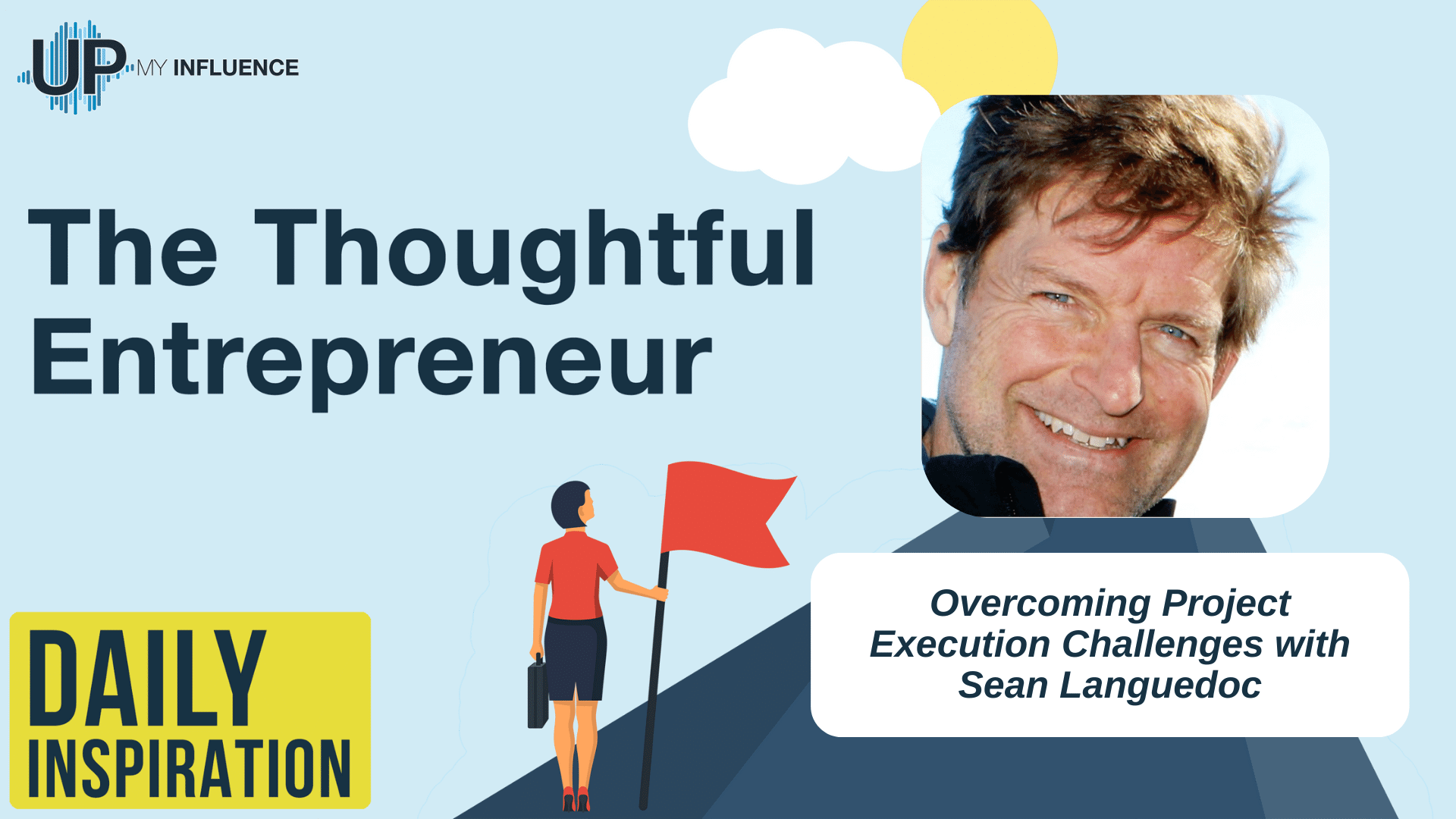THE THOUGHTFUL ENTREPRENEUR PODCAST
In this episode of the Thoughtful Entrepreneur, your host Josh Elledge speaks with the Founder & CEO of Outforce, Sean Languedoc.

Outforce was conceived from Sean's frustrations with the outsourcing landscape. The challenge of sifting through the noise to find qualified software engineers was a time-consuming and often costly endeavor. Sean's mission with Outforce was clear: streamline hiring the right expertise efficiently and effectively.
Hiring and staffing engineers is notoriously slow and challenging, particularly in the tech sector. The high demand for skilled professionals and the limited availability create a bottleneck for businesses looking to scale.
Outsourcing can be a game-changer, offering a faster route to assembling a team. However, it's crucial to find engineers with the technical skills and domain expertise to match your project's needs.
Sean, a seasoned tech founder, understands the risks involved in hiring. The cost of bringing on someone who isn't the right fit can be significant. He stresses the importance of effective interviewing and a deep understanding of the technical requirements and domain knowledge necessary for the role.
Key Points from the Episode:
- Challenges in outsourcing software engineering
- Importance of finding the right expertise in a time-sensitive manner
- Risks and challenges of hiring engineers
- Outsforce's platform and approach to matching companies with engineering teams
- Pricing model and negotiation leverage of Outforce
- Defining scope and executing projects effectively
- Importance of dynamic interaction between engineering, sales, and customer success teams
About Sean Languedoc:
Sean Languedoc boasts over 25 years of experience in the tech industry, currently serving as the CEO of Outforce.ai (formerly Global Talent Accelerator). Throughout his entrepreneurial journey, Sean has excelled in transforming outsourcing from a daunting task into a strategic asset for venture-backed companies.
At the core of Outforce.ai is the mission to simplify the outsourcing process, turning it into a direct path for achieving goals. Sean fosters collaborations that swiftly transition from onboarding to project execution, reducing lead times for tech ventures.
In addition to his leadership at Outforce.ai, Sean remains actively involved in the startup ecosystem as a mentor, guiding emerging entrepreneurs and contributing to the growth of the tech innovation landscape.
Sean's commitment extends to serving on the boards of A100 and as a Charter Member at C100, emphasizing his dedication to advancing tech innovation and entrepreneurship in Canada and beyond.
About Outforce:
Outforce, a pioneering venture in outsourcing solutions, simplifies the complex process of sourcing and scaling engineering teams for venture-backed companies. With a focus on safety and efficiency, Outforce navigates the intricate outsourcing landscape by thoroughly vetting thousands of engineering agencies.
The platform employs a swift and comprehensive approach, filtering and assessing teams based on essential criteria such as culture fit, domain expertise, and technical proficiency.
By seamlessly matching companies with the most suitable teams, Outforce transforms the outsourcing experience from a bewildering maze into a streamlined path to mission accomplishment.
This innovative solution enhances team onboarding speed and ensures a strategic alignment that propels venture-backed enterprises toward their growth objectives.
Apply to be a Guest on The Thoughtful Entrepreneur:
https://go.upmyinfluence.com/podcast-guest
Links Mentioned in this Episode:
Want to learn more? Check out Outforce website at
https://www.outforce.ai/reference-content/old-home-2
Check out Outforce on LinkedIn at
https://www.linkedin.com/company/get-outforce/
Check out Outforce on Instagram at
https://www.instagram.com/getoutforce
Check out Outforce on Facebook at
https://www.facebook.com/getoutforce/
Check out Sean Languedoc on LinkedIn at
https://www.linkedin.com/in/seanlanguedoc/
More from UpMyInfluence:
We are actively booking guests for our The Thoughtful Entrepreneur. Schedule HERE.
Are you a 6-figure consultant? I’ve got high-level intros for you. Learn more here.
What is your #1 Lead Generation BLOCKER? Take my free quiz here.
Want to learn more about all the podcasts managed by UpMyInfluence? Opt in here.

